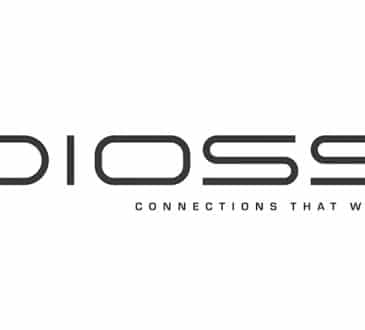Transcendence is Built on Strong Culture

Eight Attributes Worth Cultivating
Companies are immensely interested in culture. Those that lead understand it offers them a distinct competitive advantage. Where would Nike or Microsoft be without their culture? The answer is “not so successful.” For purpose-driven companies, culture protects the things that matter most: a singular focus on delivery of purpose, fully engaged employees, an open mindset, rapid reinvention and responsiveness. As Simon Sinek pointed out, purpose is a company’s “why.” But it also represents a desired “end” state — what a company is constantly striving to become. The implication is profound.
Purpose sets achievement in motion. As a company seeks its purpose, there will always be a great number of challenges, roadblocks, market shifts, external shocks and even character
and prioritization changes. Delivery of purpose requires strategic planning as well as mastery of disciplines such as scenario planning, multidisciplinary team development, continuous reinvention, market agility and rapid responsiveness to unexpected challenges. It requires people to look for better and better ways to fulfill purpose — this insight is at the core of every purpose-led Culture.
We find that the eight principles below are commonly shared traits of companies striving for transcendence and critical for purpose-led companies to adopt. We use secondary research
and direct quotes from Patagonia’s founder, Yvon Chouinard, to show the transformative power of the principles in action.
Principle 1: Build and Act on a Clear Purpose Identity
Patagonia has a strong brand identity that is purpose led. Their identity stems from a strong sense of self — an incredible combination of shared cultural values, beliefs and storytelling. They are minimalists, climbers, surfers and nature lovers who are fierce protectors of the planet.
According to the founder, “Patagonia’s image arises directly from the values, outdoor pursuits and passions of its founders and employees. The only way to sustain an image is to live up
to it. Our image is a direct reflection of who we are and what we believe.”
Principle 2: Lead by Example
Purpose leaders are deeply centered, passionate about their corporate purpose and aligned personally. They intentionally lead with purpose and seem blind to the tension between purpose and profit — confident that decisions made with purpose will lead to greater long-term financial results.
“Before we are entitled to encourage other companies to act responsibly we have to do so ourselves. There’s only one way to lead, and that’s by being in front and leading by example. Our environmental assessment program educates us, and with education we have choices. When we act positively on solving problems instead of ignoring them or trying to find a way around them, we are further along the path toward sustainability. Every time we’ve elected to do the right thing, it’s turned out to be more profitable.”
Principle 3: Align Business Policy, Practices and Programs
Patagonia’s purpose is vertically integrated into their business practices and aligned throughout its organization. The best evidence is derived directly from the founder’s thoughts on product development: “Maximum attention is given to product quality, as defined by durability, minimum use of natural resources, multi-functionalism, non-obsolescence, and the kind of beauty that emerges from absolute suitability to task. Concern over transitory fashion trends is specifically not a corporate value.”
From Purpose Brand’s research we know that corporate giving authenticates the purpose you espouse. Patagonia has long given 1% of sales to grassroots charities and nonprofits that are
committed to protecting the planet. In 2019, they were named Champion of the Earth, the United Nations’ highest award. Nearly 70% of Patagonia’s products are made from recycled materials, including plastic bottles, and the goal is to be carbon neutral, a pledge that includes their supply chain, by 2025. This means they will use 100% renewable or recycled materials by 2025.
Principle 4: Value Employees and Their Values
Patagonia’s leaders embrace employees and align their own purpose with employees’ values. They hire nature lovers and recognize that human resource policies must reflect those values.
Several examples are worth sharing. Dean Carter, the head of HR said, “So when the surf’s up, they’re going to be surfing anyway. If we didn’t have a Let My People Go Surfing policy, we’d have a lot of performance action plans.” They give employees a three-day weekend every other week, based on 9 hours a day Monday to Thursday and 8 hours on alternating Fridays. They also sponsor two months of paid leave for employees to volunteer with an
environmental organization. Finally, the company will pay for bail if an employee gets thrown in jail for protesting.
Principle 5: Be Unapologetic When Upholding Values and Apologetic When Off Course
Patagonia promotes living a self-examined life. In voice and tone, they communicate a self-awareness and self-discovery that often escapes non-purpose-led companies — and do so even when advertising. They are unapologetic when protecting the planet, yet uniquely apologetic when their values demand they be and strike the rare balance of understanding the cynic in us as well as the optimist — the demons that plague us.
This 2020 print ad below reflects these insights. As humans, we are skeptics, but fierce supporters of our most passionate values.
Print Ad:
We’re all screwed
So don’t tell us that We can imagine a healthy future Because the reality is It’s too late to fix the climate crisis And we don’t trust anyone who says We need to demand a livable planet Because we don’t have a choice (Now read this bottom up)
Their apology post-George Floyd protests shows deep reflection and discovery of broken promises. In “learning how to become an antiracist company,” Patagonia discovered, “we are a white-led outdoor company reliant on recreation on stolen Native lands that are not yet safe for all. Recent months have revealed how much more we need to do to live up to our values as an activist company. We missed too much. Our hearts hurt, but our pain is nowhere near what our colleagues who identify as Black, Indigenous, or people of color have suffered. We are sorry for the harm we’ve caused.”
Principle 6: Be Empathetic and Open to Diversity, Inclusion and Equity
Patagonia’s communications regarding DE&I matters appear to keenly and genuinely reflect the emotions of others, and bring great reflection on the role they have played in the perpetuation of disparities. They said it so well: “We’re learning how to become an antiracist company.”
When tackling sensitive topics, the company appears to truly be at its communication best. One feels that their internal challenge to genuinely understand situations and act upon them is
real. Their roots in employee and corporate activism may give them a quiet competitive advantage. We believe this tension is effectively used to advance ideas and beliefs so they become more readily accepted, and to create products that are more readily purchased.
Principle 7: Be Self-Aware and Always Focus on Doing Better
Patagonia communication is always reflective, filled with insight on their purpose positioning, and how the company can engage and act to achieve it. As a culture, they appear to challenge themselves at every turn.
The founder admonishes that Patagonia should “begin with an attitude of embracing change rather than resisting it — not just changing without reflection and weighing the relative merits of new ideas, but nonetheless assuming that if we only look hard enough, there may be a better way of doing things.”
Principle 8: Be Open to the Unexpected and Be Adaptable
Patagonia is agile in their approach and realizes that while situations change, the company’s culture and values are the bedrock of the future.
Chouinard said: “Our philosophies aren’t rules, they’re guidelines. They’re the keystone of our approach to any project, and although they are ‘set in stone,’ their applications to a situation aren’t. In every long-lasting business, the methods of conducting business may constantly change, but the values, the culture and the philosophies remain constant.
It’s the same in nature. Nature is constantly evolving, and ecosystems support species that adapt either through catastrophic events or through natural selection. A healthy environment
operates with the same need for diversity and variety evident in a successful business, and that diversity evolves out of a commitment to constant change.”
Bottom line: A purpose-led culture is a potent weapon to protect the resiliency of a business. It commits to purpose and change — such is the world it lives in. It knows that global transformation is not possible without a commitment to change. For it, the concept of evolution and adaptation go hand in hand — using a purpose-led culture to transform the outside world.
As an iconic legend in the purpose-driven corporate world, Patagonia has evolved well beyond the developmental stages of purpose and transformed itself into a truly purpose-led company. A purpose-led culture can offer tremendous competitive advantage. Each of us has an opportunity to strengthen our cultures by using the principles above.
Adapted from ADAPT: Scaling Purpose in a Divisive World by Diane Primo.
Have you read?
Inside the business world of Ulugbekhon Maksumov’s Aksum Group.
David Martin: Terra Group Breaking Ground on Sustainable Development in South Florida.
CEO Spotlight: Vince Iannello – Budgeting Made Simple.
CEO Spotlight: Dr. Apollo Emeka of Apollo Strategy Group.
Add CEOWORLD magazine to your Google News feed.
Follow CEOWORLD magazine headlines on: Google News, LinkedIn, Twitter, and Facebook.
Copyright 2024 The CEOWORLD magazine. All rights reserved. This material (and any extract from it) must not be copied, redistributed or placed on any website, without CEOWORLD magazine' prior written consent. For media queries, please contact: info@ceoworld.biz








